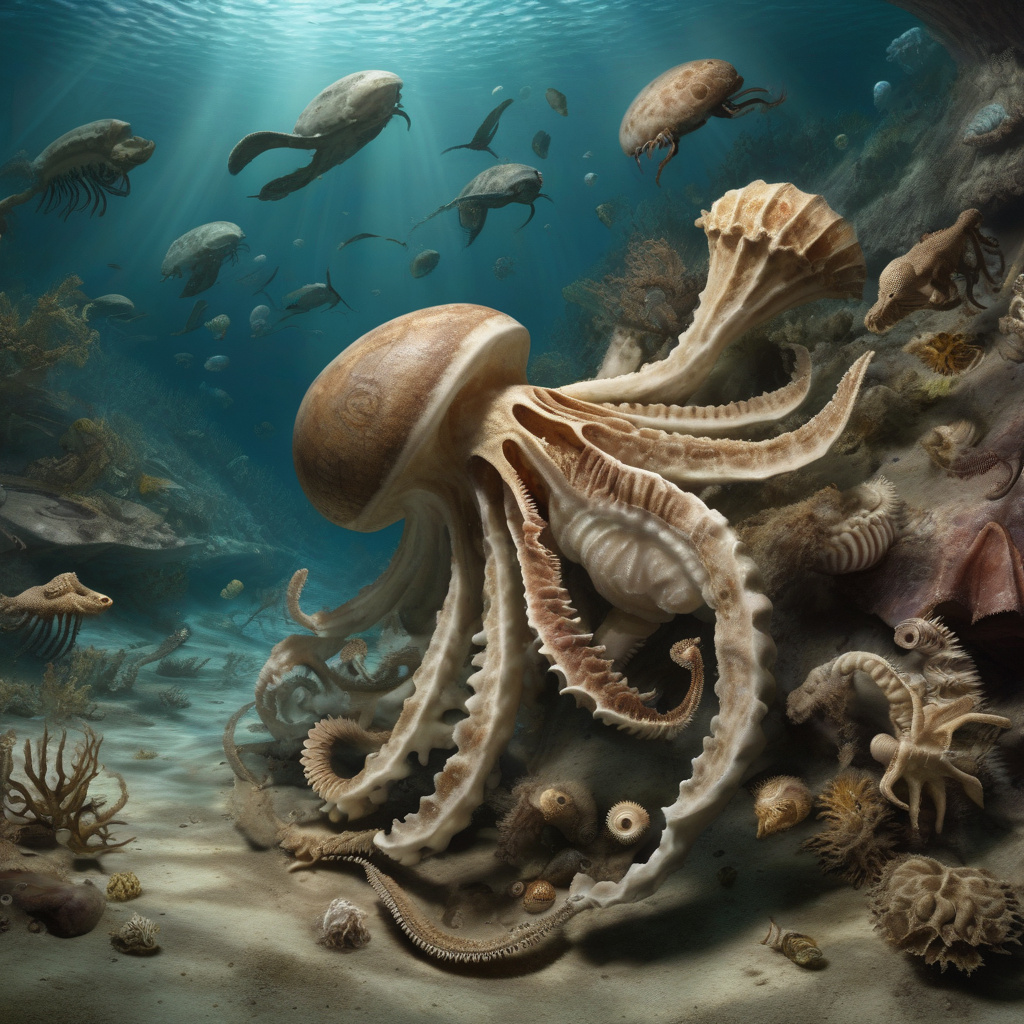Ancient Squids: Discovering the Secrets of the Oceans’ Rulers
Squids are magnificent creatures that have long captured the imagination of scientists and enthusiasts alike. Their unique features, such as their lightning-fast speed, ability to change colors for camouflage, and complex intelligence, have earned them the title of rulers of the open oceans. Recently, a groundbreaking discovery has shed new light on these fascinating creatures: a 100 million-year-old fossil of ancient squids has been unearthed, offering a glimpse into the distant past and the evolution of these enigmatic beings.
The fossil, found in a remote region known for its rich paleontological history, provides researchers with a rare opportunity to study the ancient ancestors of modern squids. By examining the well-preserved remains, scientists can piece together crucial information about the morphology, behavior, and ecological roles of these creatures from millions of years ago. This discovery is not only a testament to the enduring legacy of squids but also a testament to the importance of paleontological research in understanding the history of life on Earth.
One of the most striking features of the ancient squid fossil is its sheer size. Measuring several meters in length, these ancient squids were formidable predators that dominated the prehistoric oceans. Their tentacles, equipped with powerful suckers and sharp hooks, allowed them to capture and subdue prey with ease. In addition to their impressive size, these ancient squids also exhibited advanced camouflage capabilities, enabling them to blend seamlessly into their surroundings and evade detection by predators.
Furthermore, the discovery of the ancient squid fossil has significant implications for our understanding of cephalopod evolution. By comparing the anatomical structures of ancient and modern squids, researchers can trace the evolutionary pathways that have shaped these creatures over millions of years. This comparative approach not only enhances our knowledge of squid biology but also provides valuable insights into the broader patterns of evolution within the animal kingdom.
In addition to their scientific importance, ancient squid fossils also hold cultural and educational value. These enigmatic creatures have long captured the public’s imagination, appearing in myths, legends, and popular culture throughout history. By studying ancient squid fossils and sharing their stories with the public, researchers can foster a greater appreciation for the natural world and inspire curiosity about the wonders of the past.
As we continue to unravel the mysteries of the ancient squid fossil, one thing remains clear: squids are truly remarkable creatures that have stood the test of time. Their resilience, adaptability, and sheer diversity make them a fascinating subject of study for scientists and nature enthusiasts alike. By delving into the depths of the oceans and uncovering the secrets of these enigmatic beings, we not only expand our knowledge of the natural world but also gain a greater appreciation for the wonders of evolution.
In conclusion, the discovery of a 100 million-year-old fossil of ancient squids represents a significant milestone in paleontological research. By studying these remarkable creatures from the past, we gain valuable insights into the evolution of squids and the oceans they inhabit. As we continue to unearth new discoveries and piece together the puzzle of prehistoric life, one thing is certain: the reign of the ancient squids continues to fascinate and inspire us to explore the depths of the unknown.
squids, ancient, oceans, fossil, discovery












